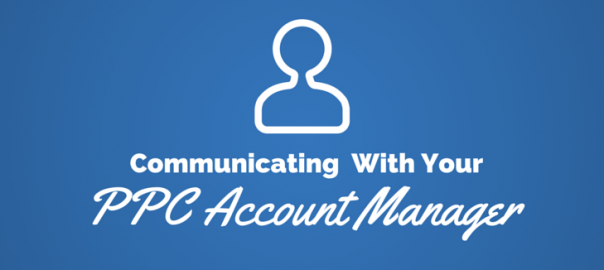
Stop, collaborate, and listen. If only more people followed the sage advice of Robert Van Winkle, the business world would be a better place.
Do you feel like you’re dealing with Charlie Brown’s teacher when you’re talking to your account manager? All you’re hearing is “wah-wah-wah,” and sometimes it’s all they hear too (hey, the truth hurts). Too often miscommunication (or lack of communication) results in tense client relationships. Both the client and the account manager experience frustration when their needs aren’t being met.
So what’s the solution? Effective communication. Here’s five handy tips to make the communication process smoother for both parties.
1. Get to Know Your Account Manager
Hi, my name is… Slim Shady. Other than knowing your account manager’s name, do you know anything else about them? Sure, you don’t need to know their favorite color or their plans for the weekend, but you do need to understand their goals (i.e. incentives and bonuses).
Why? Well, account managers are an evolving species. It’s important to know what makes them tick. And an account manager who’s aiming for a big bonus will sell harder for you than one with no incentive.
As you become familiar with your account manager and develop a working relationship, keep in mind a few of these key traits:
- Effective Communicator: It’s easy to understand what your account manager is saying.
- Knowledgeable: Your account manager knows your company’s background and goals.
- Responds Quickly: When you have an inquiry, your account manager gets back to you before COB.
- Well-Organized: Your account manager is always on the ball and can quickly pull a report or statistic whenever you need it.
- Proactive: They’re aware of the problem before you are and they come up with a solution to the problem.
This should help you gauge whether you’re working with an awesome account manager, or a lousy one.
2. Maintain Consistent Communication
Communication is a two-way street. Your account manager can’t address an issue if they’re not aware of one. It’s common sense not to make campaign changes without consulting your account manager first, but you’d be surprised by how many people do just that. Be honest and communicate your goals and metrics, and let your account manager know if/when something changes.
For example, you tell your account manager that “time on site” is the number one metric you’re looking at, but then you pull the campaign because your CPC is too high. See why your account manager might be confused? Your account manager can’t optimize properly if they don’t know the real metrics. Common sense, right?
Likewise, say you’re a computer parts company who’s having a sale on monitors. Your sale was so popular that you sold out of the product within two days, but the sale is scheduled to go for three more days. Contact your account manager immediately to adjust your campaign. This way you don’t waste money advertising a sale that’s already over.
Remember consistent communication. Whether you chat weekly or twice a day, you’ll avoid potential pitfalls by keeping your account manager on the same page as you.
3. Don’t Be Afraid to Ask
When communicating with your account manager, don’t be afraid to question their feedback, or ask for their help. After all, you’re the one making the investment, so make sure you’re getting your money’s worth.
Feel free to:
- Pick their brain. There’s no such thing as a stupid question.
- Request copies of their reports. Your account manager should be able to provide you with a report weekly. These reports should give you insight as to what’s working and what’s not.
- Use their access to tech support. Don’t waste time trying to figure out a glitch with a sales app or platform. Ask your account manager to put you in touch with their tech support.
And remember, after making a request, always follow up with a verbal (or email) ‘thank you,’ two of the most important words in business. Your account manager will appreciate it.
4. Don’t Trust Your Account Manager
Yes, we said it. Feel free to keep tabs on ROI yourself. It’s your business and you should know what’s going on. And when it comes to ad copy advice, it’s okay not to trust your account manager. In fact, many industry experts advise you not to.
Why? Think about it. Most account managers have never crafted an ad themselves.
Remember their bread and butter is cold calling. It’s up to you as the marketing manager (or the copywriter) to craft compelling ad copy, not the account manager. Would Martha Stewart trust Gwyneth Paltrow in her kitchen? Um, no. So, when an account manager tries to give you ad copy pointers, just smile and say thank you, I’ve got it handled.
5. Expect Turnover
Don’t become too attached to your account manager. Like one hit pop wonders (‘cough’ Willa Ford), account managers come and go. It’s not unusual for some clients to go through three or more reps over the course of a year.
This turnover means you (the client) will be transferred to someone else. When the transfer takes place, you’ll optimistically hope that all of your info will be given to your new account manager. But let’s be realistic, it probably won’t. Back up your relevant campaign info just in case you need to share it with the new account manager.
Conclusion
Developing a good relationship with your account manager will reap you many benefits. You’ll have a steady stream of communication, access to technical support, and hopefully someone who’s looking out for your best interests.
In what ways do you communicate with your account manager?
(230)
Report Post








